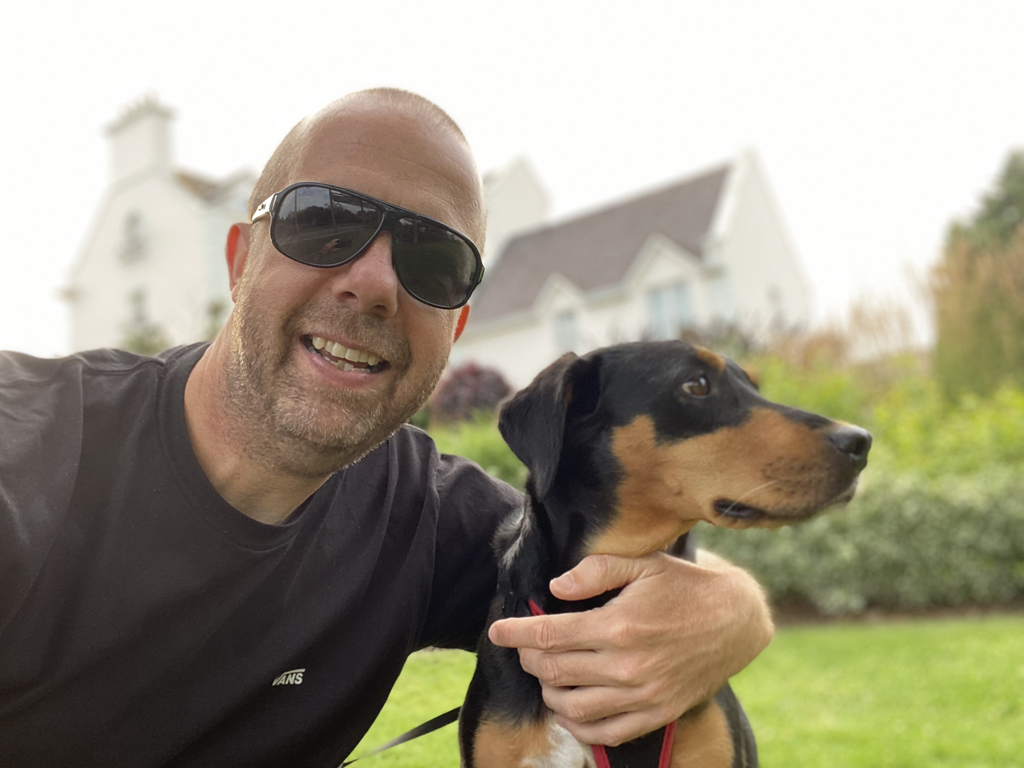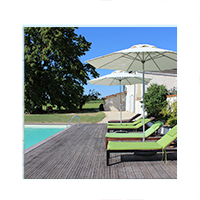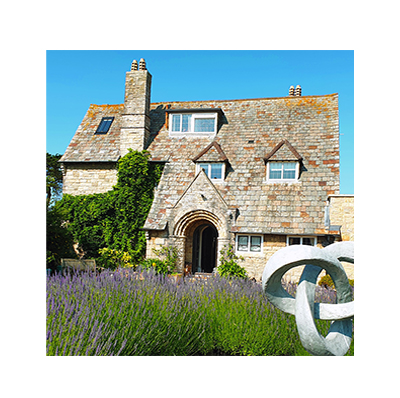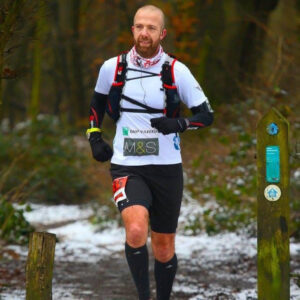 In 2024, I was approaching 50 and on the surface, life was treating me well. I had a job I enjoyed, as well as a thriving side business organising running events. I lived on the beautiful island of Jersey, just off the coast of France and I was doing well financially. However, on a personal level I was lonely and struggling.
In 2024, I was approaching 50 and on the surface, life was treating me well. I had a job I enjoyed, as well as a thriving side business organising running events. I lived on the beautiful island of Jersey, just off the coast of France and I was doing well financially. However, on a personal level I was lonely and struggling.
Since my early thirties I’d sought emotional release in ultramarathons, but this ended in 2014 because I’d pushed myself to such extremes my body couldn’t take it any more.
I’d withdrawn from society after the Covid lockdowns and was now in danger of withdrawing further. I worked from home and found excuses not to be around people, functioning outwardly while numbing my feelings with TV and alcohol.
I had always been at the mercy of my emotions and my triggers, and this was just getting worse as I got older. I‘d recently hit it off with someone and we did well for a while, but then, like a lot of my previous relationships, things descended into conflict, hurt and arguments. I became convinced I was one of those people who was meant to be alone. My dog Jessie became my closest and most constant companion, being a substitute for a lot of things I was missing in real life. Controlling my environment, not interacting with people and avoiding social situations would mean less hurt – or so I thought.
I realised that I was in danger of becoming old and bitter. I was just coping. Badly.
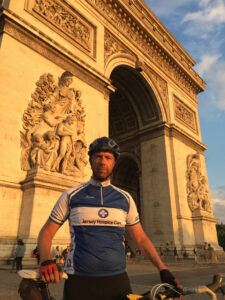 I’d been through various types of therapy and self-development before and knew that I was carrying a lot of baggage around unmourned loss – something that had followed me throughout a childhood studded with abandonment, bereavement and temporary homes. In desperation, I turned to Jersey-based therapist Cliff Le Clerq. On hearing my story, Cliff gave me two recommendations: long-term therapy –maybe 2-3 years – or looking into the Hoffman Process. I admit to feeling a little fobbed off, as it had taken courage to see him and I still felt like I was walking a tightrope; all it would take was something to go wrong and I would be off on a downward spiral.
I’d been through various types of therapy and self-development before and knew that I was carrying a lot of baggage around unmourned loss – something that had followed me throughout a childhood studded with abandonment, bereavement and temporary homes. In desperation, I turned to Jersey-based therapist Cliff Le Clerq. On hearing my story, Cliff gave me two recommendations: long-term therapy –maybe 2-3 years – or looking into the Hoffman Process. I admit to feeling a little fobbed off, as it had taken courage to see him and I still felt like I was walking a tightrope; all it would take was something to go wrong and I would be off on a downward spiral.
I walked out of Cliff’s office with a sense of disappointment, but that evening I started to research Hoffman. I’d heard of it before, but I’d been put off by the cost. However, the idea of a week facing my issues head-on in a focused environment really appealed to me, so I signed up. Shortly afterwards I received the pre course work that requires a deep dive into your childhood. It guides you expertly through so that I could see much more clearly how my circumstances had affected me – how all the loss and instability had laid the foundation for my choices as an adult.
I grew up in Wales and my parents divorced when I was six. My father proved unreliable and eventually disappeared from my life. When I was about ten, my mother passed away from cancer. Although I missed her, my grandparents took me in. They’d always been there for me, so I still felt loved and cared for.
Unfortunately, about six months later, my grandfather also passed, followed by my grandmother, on the day before my 13th birthday.
Loss was becoming a regular occurrence. By this time, I was under the care of an aunt and uncle whose son was a couple of years older than me, and I hoped I could stay. But my aunt told me my father wanted me to live with him. I was devastated. I cried all the tears I’d held back until then and I begged to stay with them, but the courts decided otherwise.
I went to live with my father, his new wife, and three stepdaughters. I felt I’d lost everything: my family, my school, my friends. The atmosphere was always tense and unhappy and finally, when I was 17, my father and stepmother divorced. My father moved out and died not long afterwards.
Luckily, as a teenager, music provided an outlet for my feelings, and it continues to do so. I played in bands and adopted a rather decadent lifestyle to numb the emotional pain. Finally, aged 20, I moved to the Midlands to live with my two much older half-brothers, where I studied art and design and got my life back on track. After graduating, I took a job on Jersey. I worked in a hotel by day, partied by night and travelled to foreign countries each winter. I dipped in and out of relationships, avoiding reality, although I didn’t realise that’s what I was doing at the time. I was always focused on the next adventure and life was exciting.
But in my early thirties, reality started to catch up with me. Relationships began well, but declined so rapidly, I realised something was wrong. It was after yet another breakup at the age of 34, that I discovered running and I took this to an extreme – a behaviour pattern I later identified on the Process.
I initially ran a marathon, then an ultramarathon, before signing up to the Marathon Des Sables, a gruelling multi-day running race across the Sahara Desert, covering more than 150 miles in a week. I had finally discovered my passion! Running calmed the dark inner voices, and I found myself earning respect and gaining notoriety.
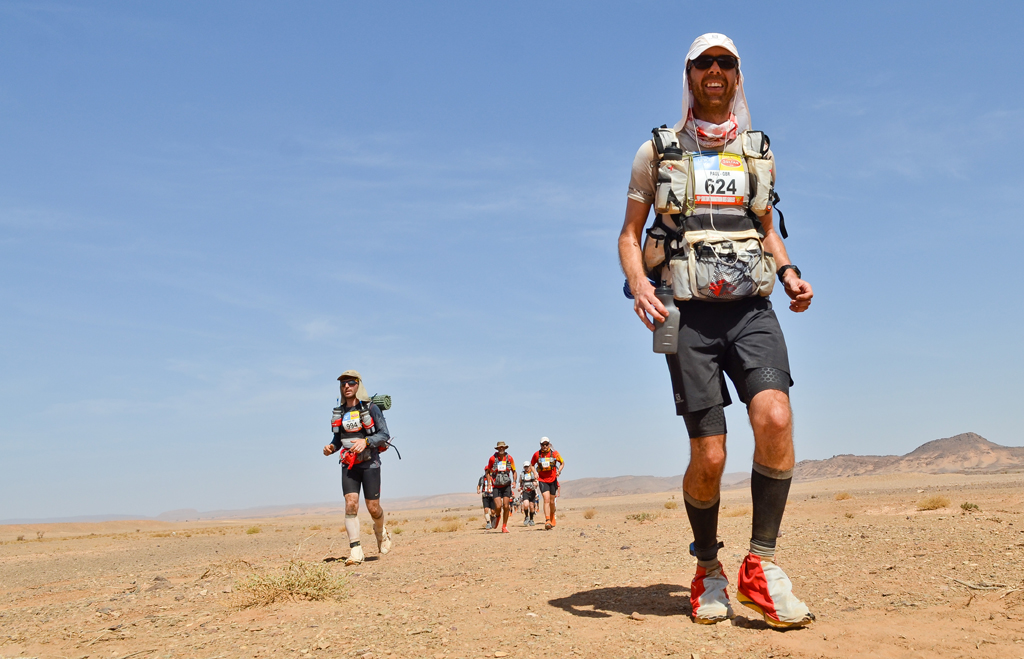
Photo credit: © https://www.kirstenkortebein.com/
But then, as I so often did, I took things too far. Each challenge got more and more outlandish; how far could I push myself? I found out in 2014 when I ran 7 ultra-marathons in 7 days – 335 miles in a week – and physically ‘broke’ myself. After this I was never the same physically, and was facing another loss. Ultrarunning had given purpose to an inner narrative defined by endurance and suffering – without the physical release, I realised I still had those feelings, but now had nowhere to hide from them.
During this time, stress, anxiety and depression were constant. I tried different medications for depression and read numerous books, but the black hole within me persisted, until the pain of it drove me to visit Cliff that day and I decided to commit to the depth of work that Hoffman offers.
I gained such amazing insights over that Process week, as well as the months afterwards. I was able to see how my participation in extreme sports was a subconscious strategy to gain approval and avoid my childhood trauma. I could see how I’d been avoiding feeling my feelings and that it was getting worse.
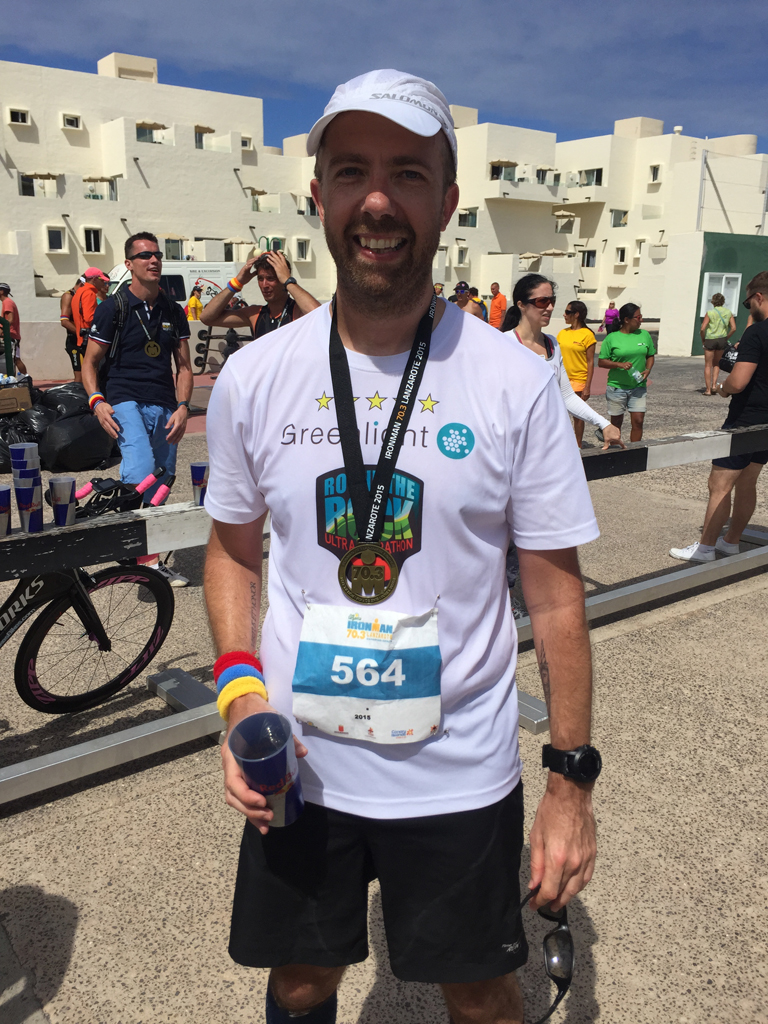 Before the Process I didn’t even realise that I had been hiding from my emotions – I just thought that was how life was. The Process has given me ways to look at what goes on under the surface when I’m in an uncomfortable or emotional situation. It’s also allowed me to reconnect with myself, to start to trust my intuition and to be more aware of my self-talk and how to challenge it. It was a revelation to finally tune in to how badly I was talking to myself, purely because of what I’d been conditioned to believe about life, myself, and what I thought I deserved. I’m now able to step outside my conditioned responses to things and challenge them. I can see exactly what is going on rather than be at the mercy of those reactions which would otherwise sabotage my life and relationships.
Before the Process I didn’t even realise that I had been hiding from my emotions – I just thought that was how life was. The Process has given me ways to look at what goes on under the surface when I’m in an uncomfortable or emotional situation. It’s also allowed me to reconnect with myself, to start to trust my intuition and to be more aware of my self-talk and how to challenge it. It was a revelation to finally tune in to how badly I was talking to myself, purely because of what I’d been conditioned to believe about life, myself, and what I thought I deserved. I’m now able to step outside my conditioned responses to things and challenge them. I can see exactly what is going on rather than be at the mercy of those reactions which would otherwise sabotage my life and relationships.
One of my biggest Process takeaways was realising how conditional the love was that I received in the second half of my childhood – how dispensable I felt – and how much of a chameleon I became in my attempt to win approval. Living in my father’s house as a teenager made me hyper-vigilant to other people’s moods and super-alert to ‘reading between the lines’. Suddenly the intense, tempestuous – and often short – relationships I’d had in the past made sense to me.
Since the Process, I’ve met someone who is calm, supportive and accepting. I was so used to being anxiously attached that it felt strange at first, but now I no longer need as much reassurance or validation. I have learned that I can be in a mutually supportive relationship. I can allow her to do things for me without wondering what she wants from me, because I can trust our partnership.
I‘ve also done a lot of follow-up work to embed the tools I learned on the Process. It’s not always been easy, and it hasn’t always gone right. But I definitely feel life has changed for the better. I’m kinder to myself and more able to challenge the instant reactions that come up.
Nowadays, I still run, but it’s more for myself as a pastime rather than anything else. Music is still a passion – my inner voice is a lot less critical, which means I can be more creative. I no longer self-censor or focus on the end product – instead I just enjoy creating for its own sake. I’m writing songs and singing a little. Recently I even sang one of my own songs to my girlfriend, which is something I could never have dreamt I could do!
Now life isn’t just treating me well on the surface. I’m treating me well at the deeper, more significant, levels and that’s making all the difference.
Visit Trail Monkey to find out more about the events that Paul organises in Jersey, everything from 5km to the famous Round the Rock Ultra Marathon! trailmonkeyjersey.com
You can read more personal accounts from people who have done the Process here
